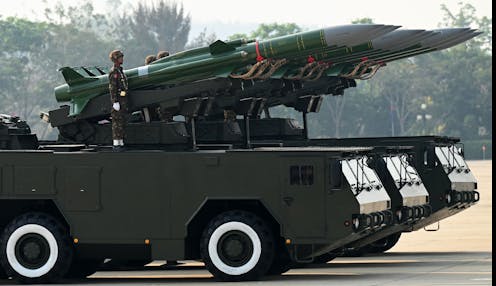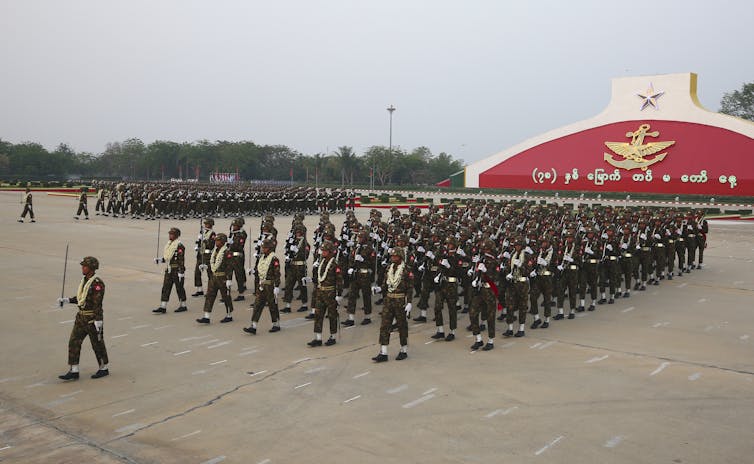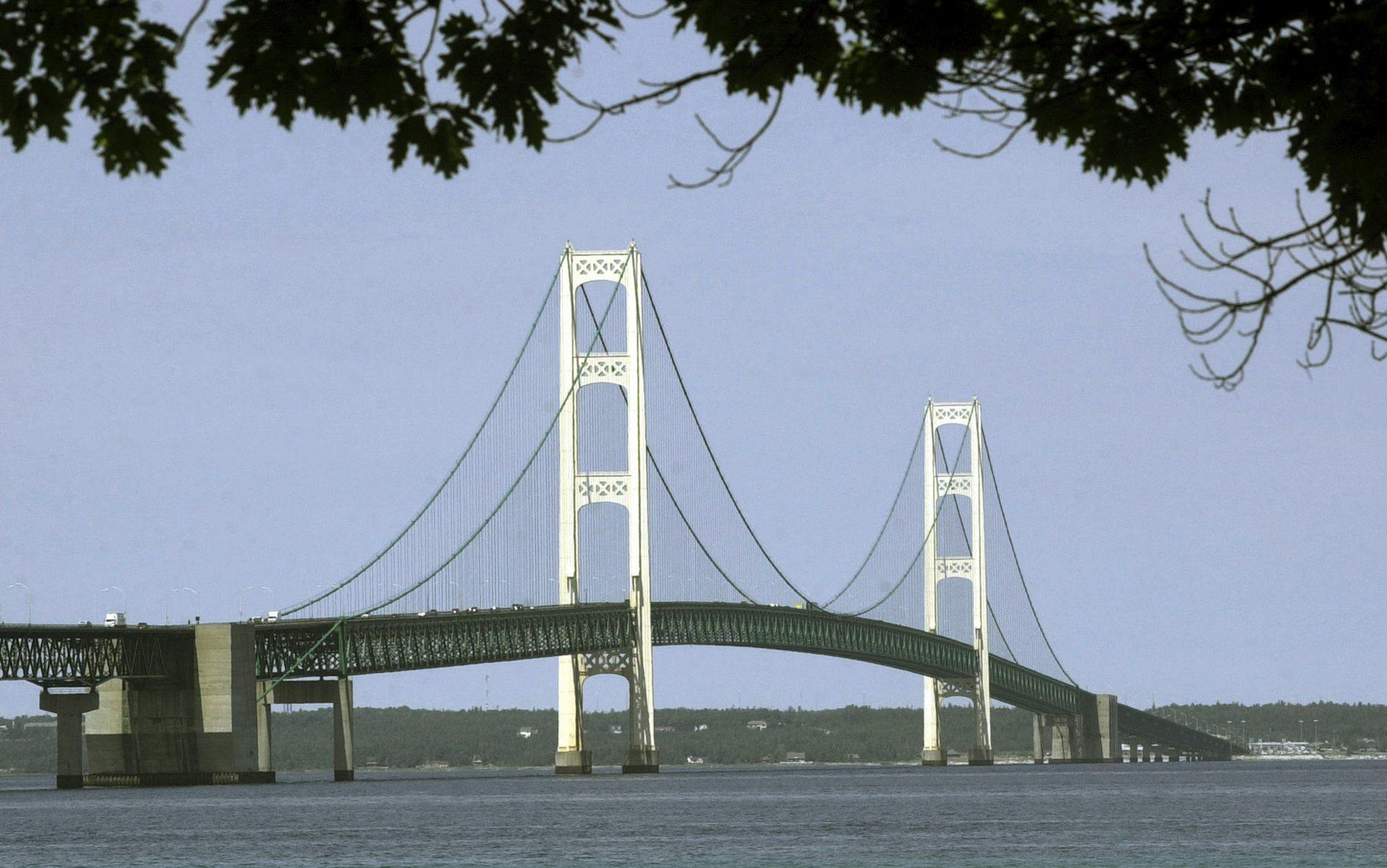3 years on from coup, economic sanctions look unlikely to push Myanmar back to democracy
Economic proscriptions by the US and EU are hampered by lack of support among Myanmar’s major trading partners in the region.

When Myanmar’s military seized back control of the country in February 2021 after a decade-long democratic interlude, the international community reached for a familiar tool: economic sanctions.
The coup led several countries, including the United States and European Union member states, to impose or reinstate trade embargoes and other financial proscriptions against Myanmar’s military.
On Feb. 1, 2024 – coinciding with the third anniversary of the military coup – the U.S. announced a fresh round of sanctions. It comes as the Myanmar government continues to be embroiled in a grinding civil war with ethnic minority insurgent groups. But to date, sanctions have not encouraged the ruling generals back toward a democratic path or tipped the war in favor of pro-democratic resistance groups.
Moreover, as experts on East and Southeast Asia and economic sanctions, we know that the history of Myanmar – and our own research – suggests that economics sanctions are unlikely to have that impact any time soon.
Current sanctions against Myanmar
The current sanctions against Myanmar share much in common with those imposed prior to 2010, when the country began a process to restore democratic government. The actions taken since 2021 by the U.S., EU and others – which include targeted and sector-specific sanctions – are aimed at undermining the military junta’s ability to violently repress the country’s pro-democracy movement.
At the same time, those imposing sanctions appear to be more cognizant than in previous periods of the potential negative impacts on the Burmese people.
The sanctions imposed after the 2021 coup are more targeted and designed to affect the military government and its enterprises. In earlier periods, the financial measures were broader and affected the entire Myanmar economy.
This is by design. The legal basis for post-2021 U.S. economic sanctions on Myanmar, Executive Order 14014, serves as the foundation for a multitude of targeted measures, which include restrictions on individuals and businesses connected to supplying Myanmar’s air force with jet fuel.
Signed on Feb. 11, 2023, the new U.S. sanctions regime reflects changes in how the Biden Administration intends to use financial penalties to target Myanmar’s generals, not its people.
The U.S. has also made it a priority to work collaboratively with international partners on imposing complementary rather than competing sanctions.
Evidence of this coordination emerged on Dec. 10, 2021, coinciding with Human Rights Day, with the U.S. rolling out a package of measures in conjunction with the United Kingdom, Canada and the European Union. For example, the EU’s “restrictive measures” – the bloc’s parlance for economic sanctions – include many of the same sanctions imposed by the U.S., such as restrictions on the export of military and dual-use equipment, asset freezes, visa and travel restrictions, and restrictions on the export of telecommunications equipment.
The U.S. has also imposed targeted sanctions via the Specially Designated Nationals list, a blacklist of people with whom U.S. citizens and firms are banned from doing business. Listed entities in Myanmar include military leaders, business people and their families. The idea is to focus the economic pain on individuals and entities involved in the coup and subsequent repression of democracy campaigners, rather than on the country as a whole.
Past sanctions against Myanmar
Certainly, history suggests that the U.S. needed to update its sanctions policy. Myanmar observers have long debated the effectiveness of the old Myanmar sanctions regime, with many concluding that it had little impact on the junta’s decision to return to democracy. Rather, Myanmar’s democratic elections were part of the military’s road map and not the result of sanctions pressure.
One reason for this skepticism over earlier sanctions was that they targeted imports from key sectors of Myanmar’s economy, such as garments and textiles, that were not connected to the junta. These economic sanctions harmed private enterprises in Myanmar.
The latest sanctions target military-owned or -linked enterprises, such as Myanma Economic Holdings Public Company, Myanmar Economic Corporation Limited, Myanma Gems Enterprise, Myanma Timber Enterprise and the Myanmar Pearl Enterprise.
The post-2021 sanctions, though, are still plagued by some of the same problems of their predecessors.
They lack the weight of the United Nations, which has not called for sanctions against Myanmar. This stands in contrast to sanctions against other countries flouting international norms, like North Korea and Iran.
The U.N. Security Council is unlikely to sanction Myanmar as permanent members China and Russia refuse to condemn, let alone sanction, Myanmar’s military rulers.
As a result, the international community has been split in its response to Myanmar’s democratic backsliding and human rights violations. While Western countries have decided to isolate Myanmar through targeted trade and financial sanctions, countries in East and Southeast Asia have maintained diplomatic and trade ties with the military government.
And there is an incentive for countries in Southeast Asia to not take part in any sanction regime. As we show in our forthcoming book, “Trading with Pariahs,” Myanmar’s trade ties tend to be strongest within its region.
During the first sanctions regime from 1988 to 2015, Southeast Asian economic ties with Myanmar became stronger as the country’s trade with sanctions-imposing Western states declined.
For countries in East and Southeast Asia, maintaining ties with Myanmar provided not only economic opportunities but also a strategy for monitoring and perhaps ameliorating Myanmar’s internal situation. For example, the Association of Southeast Asian Nations, or ASEAN, admitted Myanmar in 1997 despite the refusal of the junta to allow democratic elections and address human rights abuses. The approach favored by Myanmar’s neighbors was to try and bring Myanmar’s generals in from the cold rather than ostracizing them internationally.
And despite Singapore’s recent declaration that it will stop arms transfers to Myanmar, ASEAN member countries and those in East Asia continue to refrain from sanctioning Myanmar, preferring engagement to isolation.
Can sanctions work?
While U.S. sanctions have the potential to hurt the military, there are reasons to believe that they won’t be able to bring the government to its knees. It is likely that the uneven termination of the United States’ earlier sanctions provided insufficient time for American firms to fully engage and invest in Myanmar’s market, limiting the potential for future leverage now.

Those countries that do have significant leverage are unlikely to sanction Myanmar. And this undermines efforts by the U.S. or the West to isolate the country.
The challenge for the West can be seen in its sanctions on jet fuel trade. Amnesty International’s “Deadly Cargo” report in 2023 highlighted how Myanmar’s military can still secure reliable shipments of jet fuel despite the U.S. sanctions on the product.
The reason is more than 95% of Myanmar’s refined petroleum oils – needed for jet fuel – come from regional trading partners. Since 2021, China, Thailand, Singapore and Russia have provided much of the Myanmar’s military’s jet fuel, enabling it to continue bombing campaigns throughout the country.
Even though the U.S. Treasury has expanded its sanctions on jet fuel to include both military and commercial, the impact of these sector-wide sanctions remains unclear.
While the nature of the current U.S. sanctions is starkly different from prior efforts to pressure Myanmar’s generals, the effectiveness and potential for success appear quite similar. Given the dearth of economic ties between Myanmar and countries outside its region, the potential for change in Myanmar seems unlikely without significant efforts by those countries with an ability to weaponize their extensive economic interdependence: China, Japan and ASEAN member states.
ASEAN is not blind to the erosion of human rights, and it has signaled its awareness of the regime’s atrocities and support for civilians by denying Myanmar its turn as ASEAN’s chair in 2026.
However, the regional bloc is unlikely to impose economic sanctions on Myanmar in the foreseeable future, casting further doubt on the ability of Western sanctions to improve human rights and democracy meaningfully.
The authors do not work for, consult, own shares in or receive funding from any company or organization that would benefit from this article, and have disclosed no relevant affiliations beyond their academic appointment.
Read These Next
50 years ago, the Supreme Court broke campaign finance regulation
A gobsmacking amount of money is spent on federal elections in the US. The credit or blame for that…
When civil rights protesters are killed, some deaths – generally those of white people – resonate mo
From the civil rights era of the 1960s until today, white victims of government violence have received…
Supreme Court’s Michigan pipeline case is about Native rights and fossil fuels, not just technical l
The issue in front of the US Supreme Court is seemingly mundane, about federal or state jurisdiction.…






